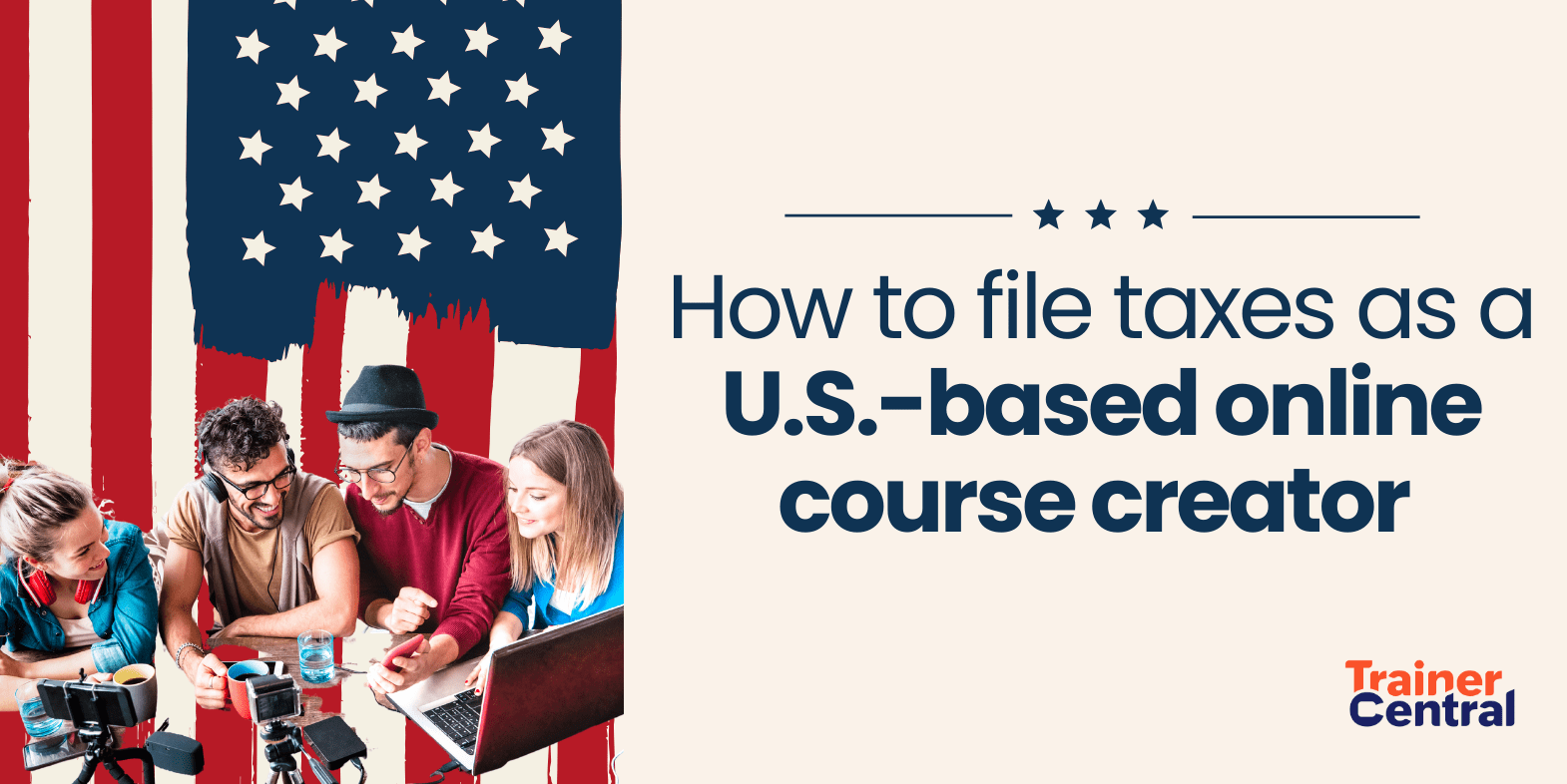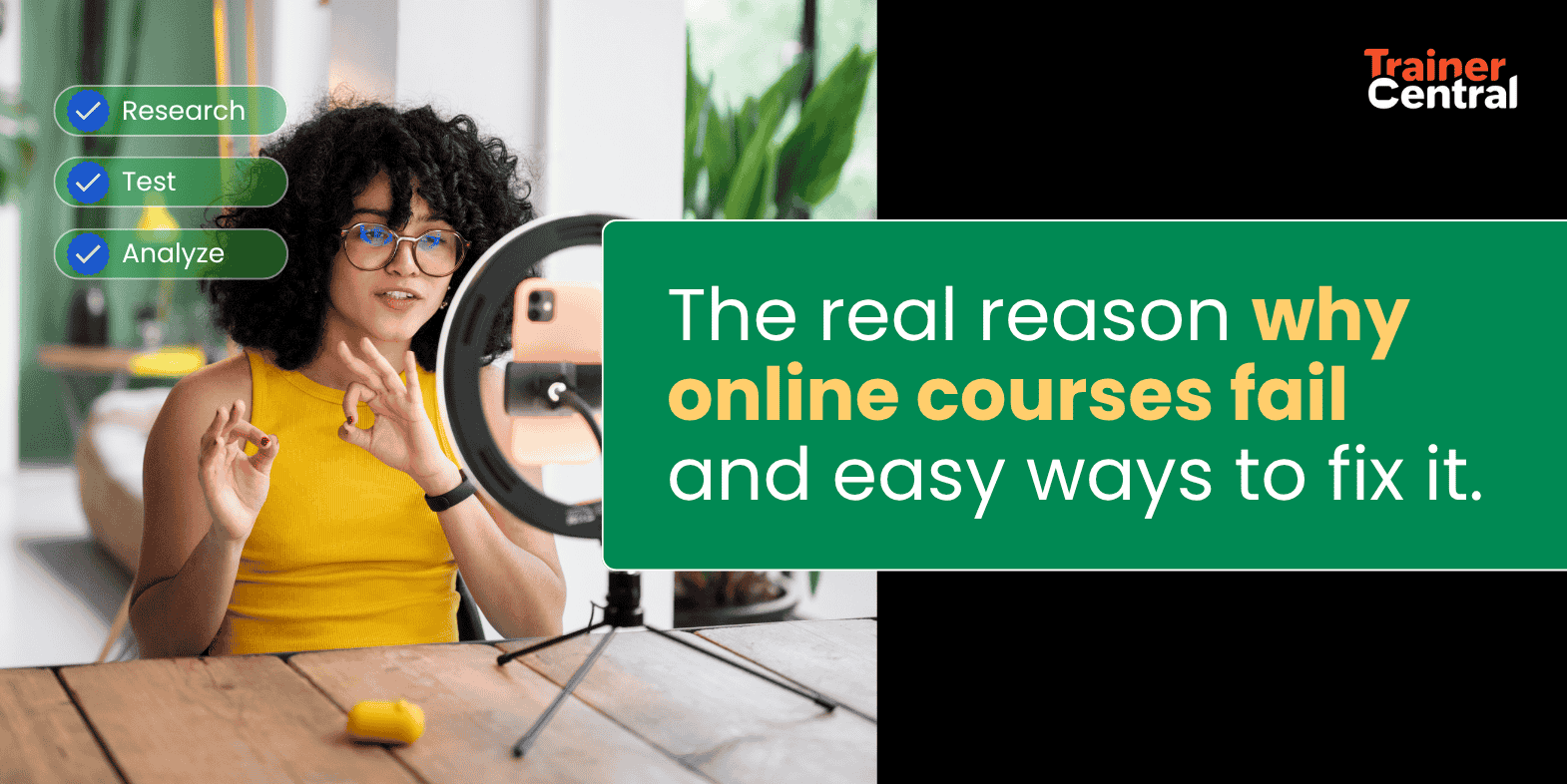- HOME
- Building a business
- Community marketing for course creators: Tips and tricks
Community marketing for course creators: Tips and tricks
- Last Updated : January 11, 2024
- 963 Views
- 10 Min Read

As a course creator, it can be challenging to get your online course in front of the right audience. Traditional advertising methods, such as Google Ads and Facebook Ads, can be costly and they're not always effective. However, community platforms such as Quora, Reddit, and Facebook Groups can provide excellent opportunities for course creators to promote their courses and reach their target audiences. According to recent research, 71% of users are more likely to make a purchase based on social media referrals.
In this blog post, we'll discuss community marketing, the strategies used, and how course creators can leverage Quora, Reddit, and Facebook Groups to promote their online courses. We'll also cover the major components of community marketing and answer some of the most frequently asked questions.
What is community marketing?
Community marketing is a type of marketing that focuses on building and engaging with communities of customers, users, and advocates around a particular brand, product, or service. It's a form of inbound marketing that aims to attract and retain customers by creating a sense of belonging and community around a brand or product.

Community marketing strategies include creating and nurturing your target audience through social media, forums, blogs, user groups, and other online and offline channels. The goal is to engage with customers, build relationships, and provide value to the community members.
Major components of community marketing
To run a successful community marketing campaign, you'll need to follow these steps.
1. Identify your target audience. The first step in community marketing is to identify your target audience. You need to understand their needs, interests, and pain points.
2. Choose the right community platform(s). Once you know your target audience, you'll need to choose the right community platforms to reach that audience. This could be social media, forums, blogs, or other online and offline channels.
3. Create content. Creating valuable content is essential for community marketing. You need to provide value to your community members through blog posts, social media updates, and other content that's relevant to their interests.
4. Engage with the community. Engagement is crucial for community marketing. You need to respond to comments, answer questions, and participate in conversations to build relationships and trust with your community members.
5. Measure your success. Finally, you need to measure your success and track your progress to see what's working and what's not. You can use analytics tools to measure engagement, traffic, and conversions.
Different types of community marketing

A mix of different types of community marketing will help you create a robust campaign for your online course. Some of these types of marketing channels include:
Social media marketing. Platforms such as Facebook, Twitter, LinkedIn, and Instagram provide an excellent opportunity for community marketing. You can use these media to engage with your customers, promote your brand, and drive traffic to your website.
Forum marketing. Online forums and discussion boards provide a platform for users to discuss topics related to your brand or product. You can participate in these forums and provide insights and advice to build relationships with your target audience.
Blog marketing. Blogging is an effective way to provide value to your audience and establish your authority in your niche. You can create blog content that's relevant to your target audience and share it on social media and other channels.
User group marketing. User groups are communities of users who share a common interest in your product or service. You can create user groups on social media or other platforms to engage with your customers, answer questions, and provide support.
Using Quora to promote your course
Quora, a popular question-and-answer website, is one such platform that can be a powerful tool in your marketing arsenal. We'll explore how course creators can use Quora to promote their courses.
What is Quora?
Quora is a question-and-answer website where users can ask questions on a wide range of topics and receive answers from other users. It's a platform where people can share knowledge and connect with others who share their interests. With over 400 million monthly active users, Quora can be an excellent platform for course creators to reach out to potential learners and promote their courses.
Creating a Quora profile
The first step in using Quora to promote your course is to create a profile. A complete and detailed profile will help you establish credibility and showcase your expertise in your field. Make sure to include a professional profile picture, a bio that highlights your skills and experience, and links to your website and social media profiles.
Answering questions on Quora

The key to promoting your course on Quora is to provide valuable answers to questions related to your course topic. Look for questions related to your course and provide detailed and insightful answers that showcase your expertise. Make sure to include a link to your course in your answer, but be subtle and avoid sounding too promotional. Your goal should be to provide value to the community and establish yourself as an authority in your field.
Following topics and engaging with the community
Quora allows users to follow topics related to their interests. As a course creator, you should follow topics related to your course and engage with those communities. Look for questions related to your course topic and provide helpful answers. You can also upvote other users' answers and engage in discussions. By actively engaging with the community, you can establish yourself as an authority in your field and attract potential learners to your course.
Promoting your course on Quora
While it's essential to avoid sounding too promotional, there are several ways to promote your course on Quora. One effective strategy is to include a link to your course in your Quora profile. This will allow users who are interested in your answers to easily find your course. You can also mention your course in your answers, but make sure to provide value and avoid being intrusive.
Another effective strategy is to create blog posts related to your course topic and share them on Quora. Make sure the blog post provides value to the community and includes a link to your course. You can also share your course on Quora's Spaces, which are communities of users who share common interests.
Quora can be a powerful tool in promoting your course and reaching out to potential learners. By creating a complete and detailed profile, answering questions related to your course topic, and engaging with the community, you can establish yourself as an authority in your field and attract potential learners to your course. Remember to provide value to the community first before promoting your course.
Using Reddit to promote your course
Reddit is a popular platform people use to discover new content and engage with others around common interests. Course creators can leverage this platform to promote their courses to a wider audience.
Understanding Reddit
Reddit is a discussion-based platform that hosts a variety of communities called subreddits. These subreddits are organized around specific topics, and users can join and participate in any subreddit they find interesting. Users can post relevant links, images, and text-based content, and other community users can upvote or downvote the content based on its quality.
Creating a community with a subreddit
Before promoting your course on Reddit, you'll need to create a subreddit dedicated to your course. To create a subreddit, click on the “Create Community” button on the Reddit home page and follow the prompts. Once you’ve created your subreddit, you can start posting content and inviting users to join.

Promoting your course on Reddit
Once you've created your subeddit, you can start promoting your course. Here are some strategies you can use for course promotion.
Stealth marketing. This strategy involves promoting your course without being too "salesy." Instead of directly promoting your course, you can contribute to discussions on related subreddits and share insights. You can also include a link to your course in your Reddit profile and encourage interested users to check it out.
Paid advertising. Reddit offers a variety of advertising options that can help you reach a wider audience. You can create sponsored posts or targeted ads that appear in relevant subreddits.
Host an AMA. An "Ask Me Anything" (AMA) is a Q&A session where users can ask anything about your course or related topics. Hosting an AMA can help you establish yourself as an authority in your field and promote your course to a wider audience.
Share student success stories. Sharing success stories from your students can be a powerful way to promote your course. You can create posts on your subreddit or other relevant subreddits that highlight the success stories of your students.
Engaging with your Reddit community
Once your subreddit is and up and running, it will take some of your time and effort to make sure your audience stays engaged. You can do this by following these tips.
Respond to comments. Responding to comments is a great way to build relationships with your users. Answer any questions they may have and thank them for their feedback.
Share valuable content. Share content relevant to your course and your community. This can include articles, videos, and infographics.
Host contests and giveaways. Hosting contests and giveaways is a great way to keep your community engaged and reward your users for their participation.
Encourage user-generated content. Encouraging your community to create their own content can help you foster a strong network. You can ask them to share their own success stories or create their own content related to your course.
Using Facebook Groups to promote your online course
Facebook Groups are a powerful way to promote your online course because they allow you to connect with potential students who are already interested in your topic. By joining and participating in groups related to your course topic, you can establish yourself as an expert in the field and build relationships with potential students.
What are Facebook Groups?
Facebook Groups are communities within Facebook that are focused on a specific topic or interest. Groups can be public, closed, or secret, depending on their privacy settings. Members of a group can post content, ask questions, and interact with other members of the group.
Promoting your online course through Facebook Groups
Here are some effective tips for promoting your course to your target audience.
Find relevant groups. The first step in using Facebook groups to promote your course is to find relevant groups to join. You can search for groups using Facebook’s search function or by using Google search with keywords like “Facebook groups” and your course topic.
Join the groups. Once you have found relevant groups, request to join them. Some groups may require approval from a moderator before you can join, while others may be open to anyone.
Participate in the groups. Once you are a member of the group, it’s important to participate in the group by answering questions, providing helpful advice, and sharing your expertise. This will help you establish yourself as an expert and build relationships with other members of the group.
Promote your course. After you've have established yourself as a valuable member of the group, you can begin promoting your course. However, it’s important to do so in a way that's helpful and not pushy. You can share a link to your course in a post, but make sure to provide value to the group members in your post as well.
Tips for success on Facebook Groups

Here are some additional tips to help you succeed in using Facebook Groups to promote your course.
Be helpful. Focus on providing value to the group members rather than promoting your course.
Follow the rules. Make sure to understand and follow the rules of each group you join.
Be patient. It takes time to build relationships and establish yourself as an expert in the field.
Measure your results. Keep track of your results so you can see what’s working and what’s not.
General tips for community marketing
To be successful in community marketing, you need to create content that resonates with community members and establishes trust and credibility. Here are some tips for creating effective content.

Provide insights, information, or resources related to your course topic that can help the community members.
Create engaging content that sparks conversations or discussions in the community.
Use visuals like images or videos to make your content more engaging and memorable.
Be authentic and genuine in your interactions with the community members.
Use storytelling to make your content more relatable and personal. Share your own experiences or anecdotes related to your course topic.
Use humor or wit to make your content more entertaining and engaging. However, be mindful of the cultural or social sensitivities of community members.
Use data or statistics to back up your claims or arguments related to your course topic. This can help establish your expertise and authority in the community.
Strategies to keep your community engaged and active
Once you've created engaging, compelling content and create an online community, you'll need to nurture that community so it thrives. Here are some tips to achieve this objective.
Encourage discussions or debates related to your course topic. Ask open-ended questions or controversial statements that can provoke thoughtful responses from community members.
Ask questions or polls to get community members' opinions or feedback. This can help you understand their needs and opinions better.
Host live sessions or webinars related to your course topic to provide more value to community members. This can help you connect with them on a more personal level and answer their questions in real time.
Provide support or guidance to community members who are struggling with the course topic. This can help establish your credibility and foster a sense of community among the learners.
Use gamification techniques like quizzes or challenges to make the learning experience more fun and interactive. This can also help motivate learners to complete the course.
Directing your community members to your online course

After you've worked so hard to create your course, you need your audience to find it. Here are some tips to do that.
Embed links to your course in your content or comments. However, don't overdo it or spam the community members with your links.
Offer exclusive discounts or promotions to community members. This can help incentivize them to enroll in your course and make them feel valued and appreciated.
Provide sneak peeks or previews of your course content to generate interest and excitement. This can help you get feedback from the community members and improve your course content.
Collaborate with other creators or influencers in your niche to cross-promote each other's courses. This can help you reach a wider audience and establish mutually beneficial relationships with other creators.
Wrapping up
Community marketing is a powerful strategy for course creators to promote their courses and attract more learners. By leveraging the power of online communities such as Quora, Reddit, and Facebook Groups, course creators can reach a highly targeted audience and establish trust and credibility with them.
To be successful in community marketing, course creators need to create valuable content, engage with the community members, and promote their courses in a non-intrusive way that feels more like a conversation than a sales pitch. They need to be patient and consistent in their efforts, and be open to feedback and criticism from the community. With the right strategies and mindset, community marketing can be a game-changer for course creators who want to succeed in the online education industry.


